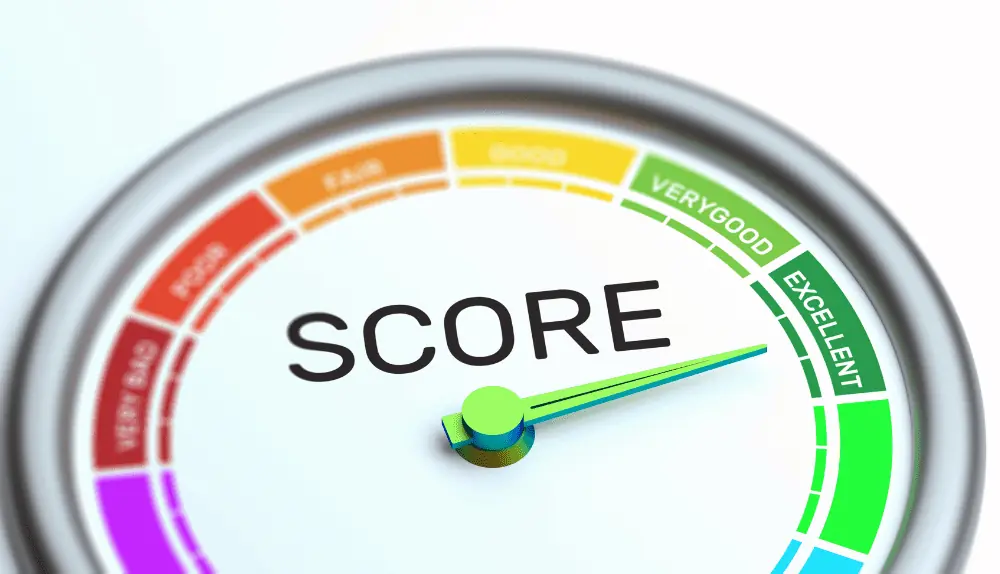When a potential client asks, “What is my Experian credit score?” you can’t afford to ignore them. This score, which can go from zero to one hundred, could affect your chances of getting a commercial loan.
Your business’s Experian Credit Information Report (Experian CIR) is reviewed, considering things like payment history, loan amounts, and credit rating. We’ll go over the Experian guidelines, demonstrate how to get your score, and offer advice on how to raise it so you can relax. Maintain patience as you plan for the growth of your company.
What Is Experian Credit Score?
The Experian Business Credit Score is an essential factor that can significantly impact a company’s financial future. This three-digit number ranges from 0 to 100 and is used to assess a company’s creditworthiness. A high Experian Business Credit Score can help a company secure a business loan, whereas a low score can result in unfavorable loan terms or even loan rejection.

Owners of businesses are required to keep an eye on their Experian Business Credit Score and, if necessary, take action to raise it. This rating is determined by the business’s credit history, unpaid debts, payment history, and account types.
Experian evaluates a company’s creditworthiness using several variables, such as credit score, credit utilization, payment history, and the number of open credit accounts.
A high Experian Business Credit Score can also assist businesses in establishing credibility and trust with suppliers and customers. It can demonstrate a company’s fiscal responsibility and aid in attracting new business opportunities.
Checking Your Experian Credit Score Online: A Simple Guide
Checking your Experian credit score online is a simple and convenient way to keep track of your creditworthiness. Knowing your credit score allows you to take steps to improve it and increase your chances of obtaining favorable loans or credit terms.
You must first create an account on the Experian website or through a third-party credit score monitoring service to check your Experian credit score online. Credit scores and other data about credit histories, like payment records, credit utilization, and active accounts, are available to account holders after registering.
It’s important to note that each of the three major credit bureaus, including Experian, must provide you with one free credit report per year. AnnualCreditReport.com, which is authorized by federal law, is where you can get your free credit report. This report, however, may not include your credit score. You may need to pay for a credit monitoring service if you want to check your credit score more frequently or receive alerts when there are changes to your credit report.
Overall, managing your finances and preserving your creditworthiness can be aided by regularly checking your Experian credit score online. By keeping an eye on your credit score regularly, you can spot areas for development and take action to establish a solid credit profile.
What is an excellent Experian credit score?
A high Experian credit score can result in favorable loan terms and interest rates, whereas a low score can result in unfavorable loan terms or even rejection. Experian credit scores range from 0 to 100, with 76 considered excellent.
A score of 56 to 75 is considered good, while a 31 to 55 is considered average. Scores under 30 are considered poor and pose a high risk to lenders. As a result, it is critical to monitor your Experian credit score regularly and, if necessary, take steps to improve it to secure the best financial future for your company.
What Factors Affect an Experian Business Credit Report?
Experian Business Credit Reports are crucial for businesses looking to obtain financing, form alliances, or gain new clients.
These reports give an overview of a business’s creditworthiness and financial history and can significantly impact how successful a company is. Numerous factors may have an impact on the information contained in an Experian Business Credit Report.
Payment history
Payment history is one of the most important factors influencing an Experian Business Credit Report. This refers to a company’s ability to make timely and consistent payments to its creditors.
Late payments, missed payments, or a history of delinquent accounts can all hurt a company’s creditworthiness and lower its credit score. Consistent and timely payments, on the other hand, can help improve a company’s credit score and demonstrate its financial stability.
Understanding credit utilization and its impact on your Experian business credit report
Another element that may affect an Experian Business Credit Report is credit utilization. This relates to the proportion of available credit used by a business. An organization may rely heavily on credit and have trouble managing its debts if its credit utilization ratio is high.
This may lower a company’s credit score and detract from its attractiveness to lenders. On the other hand, a low credit utilization ratio can indicate that a business is handling its credit responsibly and may raise its credit score.
Credit utilization ratio
The length of a company’s credit history is also essential in determining its creditworthiness. A more extended credit history can give lenders and creditors more information about a company’s ability to manage its finances and debts.
A company with a short credit history may have difficulty obtaining financing or favorable credit terms because it has fewer data to back up its financial stability.
Aside from these factors, the types of credit accounts a company has can impact its credit score. A diverse mix of credit accounts, such as loans, lines of credit, and credit cards, can demonstrate a company’s ability to manage various types of debt and may help it improve its credit score.
However, opening too many credit accounts quickly can harm a company’s credit score and indicate that it relies too heavily on credit.
Finally, public records like bankruptcies, liens, and judgments can impact an Experian Business Credit Report. These records indicate that a company has previously experienced financial difficulties, which can lower its credit score and make it less appealing to lenders.
On the other hand, a company with a clean financial history and no public records may have a higher credit score and appear more financially stable.
How to Raise Your Experian Credit Score
Reviewing your credit report
Seeing what’s on your credit report is the first step in raising your Experian score. The duration of your credit history, the percentage of your available credit that you currently use, and any late payments are just some of the details in your credit report.
Make sure everything is accurate and up to date on your credit report. If you find inaccuracies in your credit report, you can have them removed by filing a dispute with the credit reporting agency.
Timely bill payments
Paying your bills on time is another way to improve your Experian credit score. Late payments can have a significant impact on your credit score because they indicate that you are untrustworthy when it comes to repaying your debts. To avoid late payments, set up automatic payments or reminders to ensure you pay your bills on time.
Reducing credit utilization and increasing credit limits
In addition to being prompt with your bill payments, you should strive to pay more than the minimum amount required. Your credit utilization ratio (the amount of credit you use as a percentage of the total amount of credit available) can be improved by making payments over the minimum required. Credit utilization ratios that are reduced make borrowers more financially desirable to lenders.
Increasing your credit limit is another way to improve your Experian credit score. Because it increases the total amount of credit available to you, a higher credit limit can improve your credit utilization ratio.
Increasing your credit limit, on the other hand, can be risky because it may tempt you to spend more than you can afford to repay. To avoid this, only request a credit limit increase if you are confident in managing your debts responsibly.
Managing Your Credit Utilization and Credit Score
Closing unused credit accounts can also assist in raising your Experian credit score. Closing a credit account reduces the total amount of credit available to you, which can raise your credit utilization ratio.
However, you should exercise caution when closing credit accounts, as this can impact the length of your credit history. A more extended credit history is generally more appealing to lenders, so only close relatively new accounts or with high fees.
At the end of the day, you must watch how much of your available credit you use. One of the most significant factors in calculating your credit score is your credit usage ratio; ideally, this ratio should be around 30%. Increasing your payment amount or the credit limit is necessary to reduce a high credit utilization ratio.
Conclusion
Experian Credit Score is crucial in personal finance since it determines an individual’s ability to receive loans, credit cards, and mortgages. This score is represented by a three-digit number that reflects a person’s creditworthiness based on their credit history and conduct.
A good Experian credit score suggests careful financial management, while a low score may indicate a higher chance of defaulting on debt obligations. People should make timely payments, keep credit utilization low, and routinely examine their credit reports to maintain a decent Experian credit score.
It is vital to understand the factors that influence an Experian credit score and make the required efforts to enhance it. What is Experian Credit Score, then? It is a vital indicator that can substantially impact an individual’s financial condition and capacity to attain financial goals.

